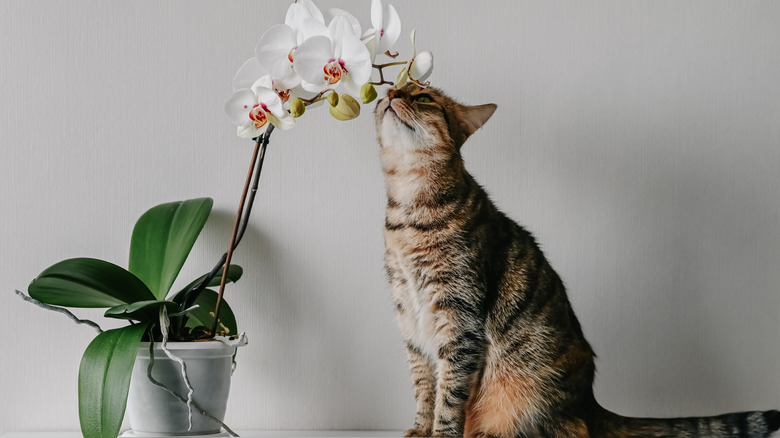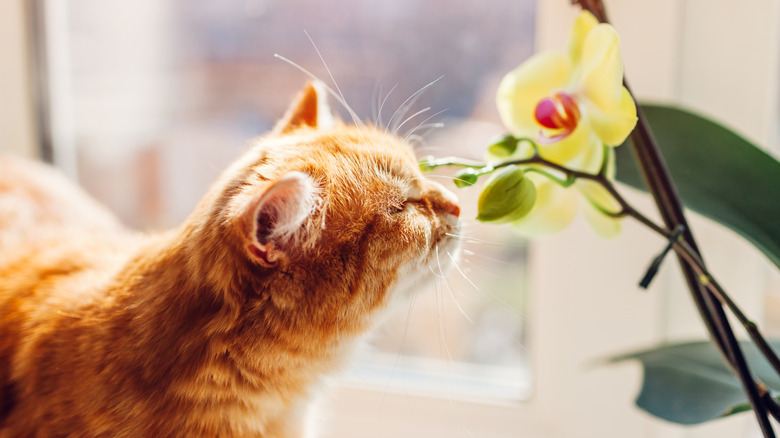Are Orchids Poisonous To Cats? The Potential Risks You Need To Know
Orchids are some of the most beautiful and bold flowers, with their intricate blooms and bright colors. For pet owners, specifically for those with cats, one of the first questions that comes up when introducing orchids into the home is if these plants are safe for their furry friends. The good news, however, is that orchids are not toxic to cats. This means that, unlike some plants that can be toxic or even fatal to pets, orchids are typically not poisonous. By understanding everything you should know before planting orchids, you can display them in or outside your home without having to worry about accidental poisoning should your cat try to have a nibble.
Just because orchids aren't one of the houseplants that are actually poisonous to cats doesn't mean they're free from all risk. Due to their curious nature, cats may chew on plants when bored or trying to find a way to entertain themselves. If your cat does nibble on the leaves, stems, or flowers of an orchid, the main risk is not from poisoning but from digestive upset. Even non-toxic plants, such as orchids, can lead to stomach problems when consumed in more significant amounts. Your cat may start vomiting, develop diarrhea, or actually become lethargic. Typically not life-threatening, these symptoms can still make your pet uncomfortable.
Other risks to consider
While orchids themselves are non-toxic, the real concern stems from the fact that cats' digestive systems aren't built for processing a lot of plant material. Cats are obligate carnivores, which means that their stomachs are designed to digest animals, not plant matter. Non-toxic plants (like orchids) can still upset a cat's stomach if eaten since plant tissue's high fibers and other compounds can be difficult for feline systems to process. Consuming a lot of orchid leaves or stems would make the matter worse, causing a more serious digestive upset.
Also, keep in mind that while orchids themselves aren't toxic to cats, any fertilizers or chemicals used on your orchids could potentially be harmful to your kitty. Many fertilizers and plant treatments can be toxic if ingested, so it's essential to be cautious that your cat doesn't come into contact with any chemicals on or near your orchids. If your cat does develop symptoms of poisoning, such as vomiting, lethargy, or excessive drooling, call a vet immediately.
There is the rare potential that cats can have allergies or sensitivities to orchids, causing mild irritation or discomfort. Symptoms may include skin conditions, breathing issues, or excessive grooming. In such cases, it's best to monitor your cat and consult your veterinarian if symptoms persist or worsen. The secret to keeping your cat out of houseplants is to hang them in hanging planters or put them on shelves that your cat can't access — just in case.

